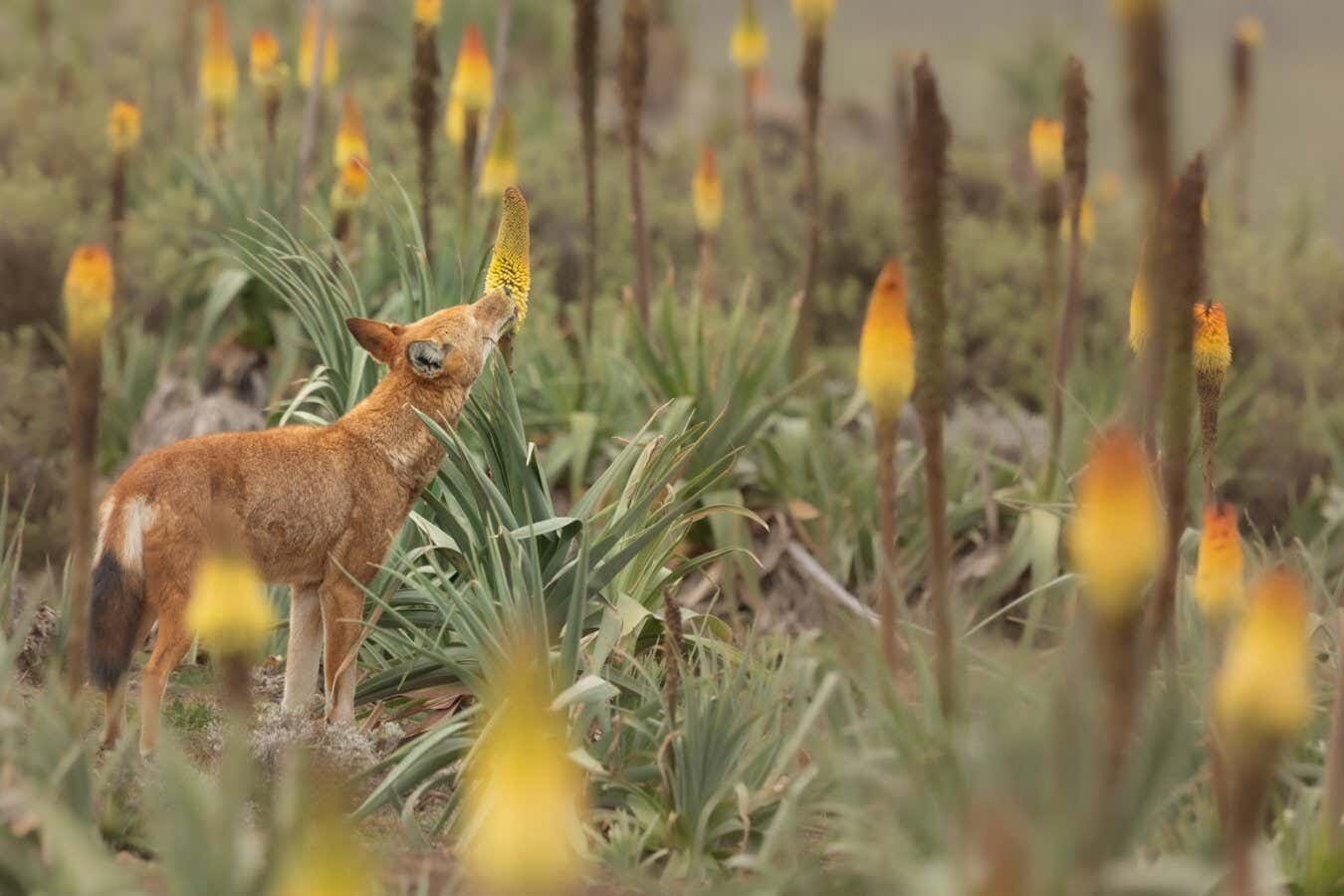The strange Ethiopian nectar-eating wolf: A predator that may also act as a pollinator
Researchers at Oxford University have managed to document the unusual feeding behavior, unique among carnivorous animals, of this endangered African canid


Ethiopian wolves love to roam the flower fields of the Bale Mountains in the south of this African country. Some of them can do so for up to an hour and a half, excited by the bright orange spikes of a plant typical of that area. Attracted by its sweet nectar, they eagerly lick the ripest flowers, while their muzzles become covered in the sticky yellow pollen that tastes like honey. For the first time this behavior, so peculiar for a large predator, has been documented thanks to a study carried out by a team of scientists led by Sandra Lai, a biologist at the University of Oxford (United Kingdom).



